VW Golf vs Toyota Yaris Cross – Differences & prices compared
Compare performance, boot space, consumption and price in one view.
Find out now: which car is the better choice for you – VW Golf or Toyota Yaris Cross?
The VW Golf (Hatchback) comes with a Petrol MHEV, Petrol, Diesel or Plugin Hybrid engine and Automatic or Manuel transmission. In comparison, the Toyota Yaris Cross (SUV) features a Full Hybrid engine with Automatic transmission.
When it comes to boot capacity, the VW Golf offers 381 L, while the Toyota Yaris Cross provides 397 L – depending on how much space you need. If you’re looking for more power, decide whether the 333 HP of the VW Golf or the 130 HP of the Toyota Yaris Cross suits your needs better.
In terms of consumption, the values are 0.30 L per 100 km for the VW Golf, and 4.50 L for the Toyota Yaris Cross.
Price-wise, the VW Golf starts at 24300 £, while the Toyota Yaris Cross is available from 23700 £. Compare all the details and find out which model fits your lifestyle best!
When comparing the Toyota Yaris Cross to the VW Golf, both models present intriguing options in their respective categories. The Yaris Cross shines with its elevated height and dynamic hybrid technology, catering to drivers seeking versatility and fuel efficiency in an urban SUV package. Meanwhile, the VW Golf continues to impress with its time-honored hatchback design, delivering a refined driving experience with a perfect balance of practicality and performance.
VW Golf
Der VW Golf überzeugt seit Jahrzehnten durch seine Vielseitigkeit und seine ausgewogene Mischung aus Komfort und Dynamik. Mit seinem zeitlosen Design und der hochwertigen Verarbeitung ist er ein treuer Begleiter im Alltag. Besonders beliebt ist der Golf wegen seiner innovativen Technologie und der großen Auswahl an Varianten, die für jeden Bedarf das passende Modell bietet.
details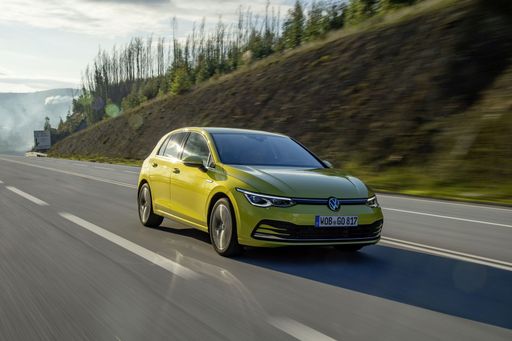 @ Volkswagen
@ Volkswagen
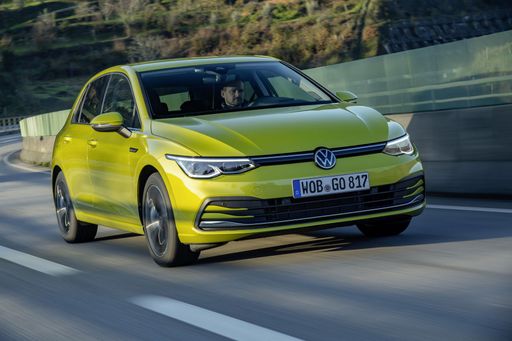 @ Volkswagen
@ Volkswagen
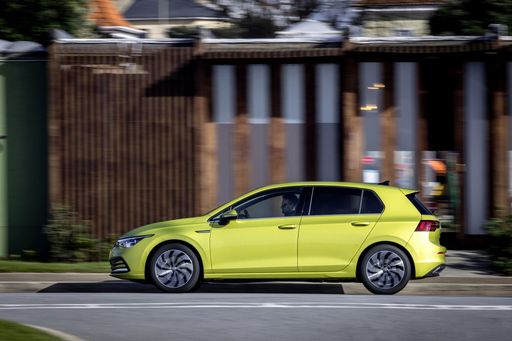 @ Volkswagen
@ Volkswagen
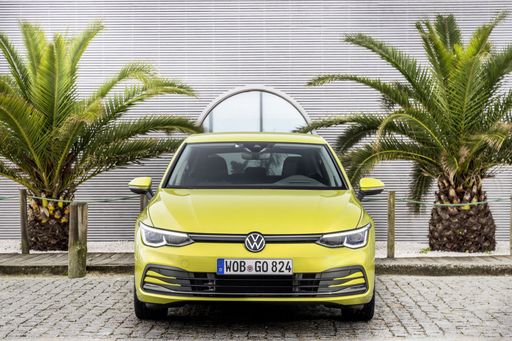 @ Volkswagen
@ Volkswagen
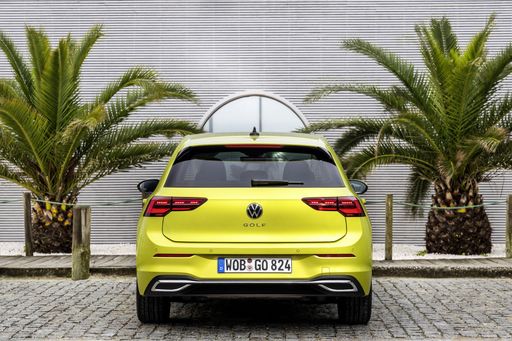 @ Volkswagen
@ Volkswagen
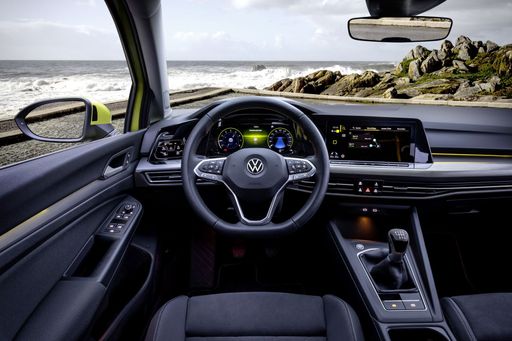 @ Volkswagen
@ Volkswagen
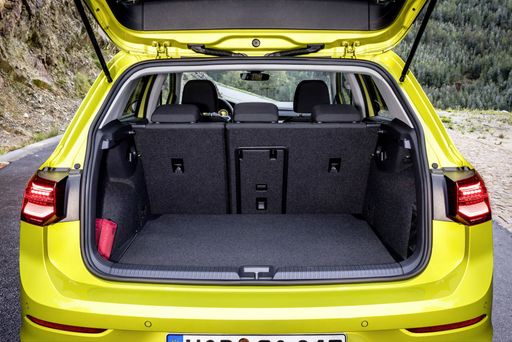 @ Volkswagen
@ Volkswagen
Toyota Yaris Cross
The Toyota Yaris Cross combines the practicality of a compact SUV with the agility of a smaller car, making it ideal for urban adventures. Its elevated seating position offers excellent visibility, while the stylish design ensures it stands out on the city streets. Inside, the Yaris Cross boasts a modern interior with advanced technology features designed to enhance the driving experience.
details @ Toyota
@ Toyota
 @ Toyota
@ Toyota
 @ Toyota
@ Toyota
 @ Toyota
@ Toyota
 @ Toyota
@ Toyota
 @ Toyota
@ Toyota
 @ Toyota
@ Toyota
The SUV Metamorphosis: Toyota Yaris Cross vs. The Reliable Hatch: VW Golf
In the world of compact automobiles, the Toyota Yaris Cross and VW Golf stand as titans, each representing distinctive approaches to car design and engineering. The Yaris Cross embodies the versatile allure of the compact SUV, while the Golf epitomizes the classic hatchback's enduring appeal. But which one of these renowned vehicles suits your driving aspirations and lifestyle needs? Let’s delve into their technical aspects, innovations, and dive into a comparative analysis.
Engine and Transmission Tech: Hybrid vs. Versatile Power
The Toyota Yaris Cross is a pioneer in the compact SUV segment with its full hybrid engine. Featuring a 1.5-liter three-cylinder engine, it offers power outputs of 116 to 130 HP (85 to 96 kW) and is supported by a continuous variable transmission (CVT). This hybrid engine excels in delivering fuel efficiency, with consumption figures between 4.5 to 4.8 L/100km, making it an environmentally friendly choice with CO2 emissions ranging from 101 to 108 g/km.
On the other hand, the VW Golf offers a diverse array of petrol, diesel, mild hybrid electric vehicle (MHEV), and plug-in hybrid powertrains, with power output from 116 HP in the diesel variant to a staggering 333 HP in the sporty configurations. With transmission options including both automatic dual-clutch and manual gearboxes, the Golf provides driving enthusiasts with an engaging experience. Fuel efficiency varies from 4.3 to 8.5 L/100km, and the plug-in hybrid variant offers an all-electric range of up to 143 km, giving it an edge in urban environments.
Driving Dynamics and Performance
In terms of acceleration, the Yaris Cross takes between 10.7 and 11.3 seconds to reach 0-100 km/h with a top speed of 170 km/h. This is substantial for an SUV of its category, delivering a balance between speed and sustainability. Meanwhile, the Golf showcases its prowess with an exhilarating acceleration from 0-100 km/h in as short as 4.6 seconds, especially in the high-performance models. Maximum speeds range up to 270 km/h, manifesting its sporty DNA.
Interior Comfort and Utility
Both vehicles cater to families and adventure seekers with their five-seat capacity. The Yaris Cross edges out in trunk capacity, offering 397 liters compared to the Golf’s 381 liters in its standard model, which translates into greater versatility for weekend trips and outdoor adventures.
The compact dimensions of the Yaris Cross (4180 mm in length, 1765 mm in width, and 1595 mm in height) make it maneuverable in urban environments while still providing the elevated driving position typical of an SUV. The Golf, longer at 4282 mm and with a width of 1789 mm, offers a more traditional hatchback profile with an emphasis on road grip and stability.
Safety and Efficiency Innovations
Safety and efficiency are paramount in modern car design, and neither vehicle disappoints. The Yaris Cross impresses with its hybrid system, which intelligently toggles between power sources to maximize efficiency. It also comes with Toyota’s safety suite, offering peace of mind through advanced driver-assistance systems.
The VW Golf has an edge in technology with an array of trims offering MHEV and plug-in hybrid models, accentuating its commitment to innovation and sustainability. Its high torque output reaching up to 420 Nm in its more powerful variants ensures quick responsiveness and exhilarating driving experiences.
Final Verdict: Choosing Between Innovation and Versatility
The choice between the Toyota Yaris Cross and the VW Golf ultimately depends on individual preferences and priorities. Those drawn to hybrid efficiency and SUV comfort will appreciate the Yaris Cross. However, drivers desiring a blend of performance, variety in powertrains, and sporty prowess might find the VW Golf more appealing. Both vehicles highlight the rapidly evolving capabilities of modern compact cars while addressing driving needs across different lifestyles.

|

|
|
|
|
Costs and Consumption |
|
|---|---|
|
Price
24300 - 51100 £
|
Price
23700 - 34300 £
|
|
Consumption L/100km
0.3 - 8.2 L
|
Consumption L/100km
4.5 - 4.8 L
|
|
Consumption kWh/100km
-
|
Consumption kWh/100km
-
|
|
Electric Range
131 - 143 km
|
Electric Range
-
|
|
Battery Capacity
19.70 kWh
|
Battery Capacity
-
|
|
co2
6 - 186 g/km
|
co2
101 - 108 g/km
|
|
Fuel tank capacity
40 - 55 L
|
Fuel tank capacity
36 L
|
Dimensions and Body |
|
|---|---|
|
Body Type
Hatchback
|
Body Type
SUV
|
|
Seats
5
|
Seats
5
|
|
Doors
5
|
Doors
5
|
|
Curb weight
1307 - 1668 kg
|
Curb weight
1180 - 1290 kg
|
|
Trunk capacity
273 - 381 L
|
Trunk capacity
320 - 397 L
|
|
Length
4282 - 4296 mm
|
Length
4180 mm
|
|
Width
1789 mm
|
Width
1765 mm
|
|
Height
1454 - 1483 mm
|
Height
1595 mm
|
|
Payload
431 - 508 kg
|
Payload
485 - 510 kg
|
Engine and Performance |
|
|---|---|
|
Engine Type
Petrol MHEV, Petrol, Diesel, Plugin Hybrid
|
Engine Type
Full Hybrid
|
|
Transmission
Automatic, Manuel
|
Transmission
Automatic
|
|
Transmission Detail
Dual-Clutch Automatic, Manual Gearbox
|
Transmission Detail
-
|
|
Drive Type
Front-Wheel Drive, All-Wheel Drive
|
Drive Type
Front-Wheel Drive
|
|
Power HP
116 - 333 HP
|
Power HP
116 - 130 HP
|
|
Acceleration 0-100km/h
4.6 - 10.2 s
|
Acceleration 0-100km/h
10.7 - 11.3 s
|
|
Max Speed
202 - 270 km/h
|
Max Speed
170 km/h
|
|
Torque
220 - 420 Nm
|
Torque
-
|
|
Number of Cylinders
4
|
Number of Cylinders
3
|
|
Power kW
85 - 245 kW
|
Power kW
85 - 96 kW
|
|
Engine capacity
1498 - 1984 cm3
|
Engine capacity
1490 cm3
|
General |
|
|---|---|
|
Model Year
2024
|
Model Year
2024 - 2025
|
|
CO2 Efficiency Class
D, C, B, F, G
|
CO2 Efficiency Class
C
|
|
Brand
VW
|
Brand
Toyota
|
VW Golf
VW Golf: Ein Evergreen mit innovativer Technik
Seit Jahrzehnten gilt der Volkswagen Golf als der Inbegriff des zuverlässigen Kompaktwagens. Doch der neueste VW Golf zeigt sich nicht nur als bewährter Alltagsheld, sondern auch als Fortführer technologischer Innovationen. Ob Benzin, Diesel oder Hybrid – der Golf bietet für jede Präferenz die passende Antriebsform und bleibt dabei stets am Puls der Zeit.
Antriebsvarianten: Vielfalt für jeden Fahrertyp
Der VW Golf ist in einer beeindruckenden Bandbreite von Antriebsvarianten erhältlich, die von klassischen Benzinmotoren über effiziente Diesel-Aggregate bis hin zu modernen Hybrid-Antrieben reichen. Insbesondere die Mild-Hybrid und Plug-In-Hybrid Modelle stellen einen herausragenden Fortschritt in Sachen Kraftstoffeffizienz und CO2-Reduktion dar. Mit einem Verbrauch von nur 0,3 L/100 km bei den Plug-In-Hybrid Varianten und einer elektrischen Reichweite von bis zu 137 km setzt der Golf Maßstäbe in seiner Klasse.
Leistung und Effizienz
Das Leistungsspektrum des Golf erstreckt sich von effizienten 116 PS bis hin zu kraftvollen 333 PS im Golf R, der mit Allradantrieb und sportlicher Dynamik beeindruckt. Vielfältige Auswahlmöglichkeiten bei Getriebearten, von manuell bis zum modernen Doppelkupplungsgetriebe (DSG), bieten zusätzliche Flexibilität für unterschiedliche Fahrstile und Nutzungsszenarien.
Technologie und Innovation
Die neuesten Golf-Modelle sind mit fortschrittlicher Technologie ausgestattet, die Komfort und Sicherheit auf ein neues Niveau hebt. Das Interieur glänzt mit einem modernen Infotainmentsystem, umfassender Konnektivität und innovativen Fahrerassistenzsystemen. Das Head-up-Display, adaptive Fahrwerksregelung und die intelligente Verkehrszeichenerkennung sind nur einige der Features, die den Golf zu einem der technologisch führenden Fahrzeuge in seinem Segment machen.
Design und Funktionalität
Der VW Golf kombiniert bewährtes Design mit funktionalen Verbesserungen. Das sportliche, aber dennoch elegante Schrägheck bietet großzügigen Platz, wobei der Kofferraum zwischen 273 und 381 Litern zu bieten hat. Die ästhetische Linienführung bei zugleich optimaler Raumausnutzung verleihen dem VW Golf seine typisch zeitlose Eleganz.
Umweltbewusstsein und Nachhaltigkeit
In einer Zeit, in der der bewusste Umgang mit Ressourcen immer wichtiger wird, überzeugt der Golf mit einer hohen Effizienz und geringen Emissionen. Die verfügbaren CO2-Effizienzklassen von B bis G zeigen, dass der Golf auch in puncto Umweltverträglichkeit eine gute Wahl darstellt. Dank der Auswahl an ressourcenschonenden Antrieben trägt der Golf zur Reduzierung des ökologischen Fußabdrucks bei.
Fazit: Der VW Golf bleibt ein Bestseller
Mit stetiger Weiterentwicklung in Technik und Design bleibt der VW Golf ein Dauerbrenner auf dem Automobilmarkt. Seine Vielseitigkeit in Antriebsarten, gepaart mit modernem Komfort und zukunftsweisender Technologie, macht ihn zu einem Fahrzeug, das nicht nur treue Fans begeistert, sondern auch neue Kunden anspricht. Der Golf bleibt ein Symbol für Zuverlässigkeit und Innovation in einem sich stetig wandelnden Markt.
Toyota Yaris Cross
Discovering the Toyota Yaris Cross: The Compact SUV Redefined
The Toyota Yaris Cross has boldly entered the compact SUV market, sporting a blend of sleek aesthetics, advanced hybrid technology, and practical functionality. As urban driving dynamics evolve, this vehicle meets the demands of modern motorists with an impressive performance and eco-friendly technology, setting itself apart in a bustling segment.
Performance and Efficiency: Hybrid Innovation at Its Best
The Yaris Cross is designed to provide an engaging driving experience combined with remarkable efficiency. At its heart lies a full hybrid powertrain, offering options between 116 PS and 130 PS, efficiently paired with Toyota's CVT automatic transmission. The hybrid system seamlessly integrates a petrol engine with an electric motor, optimising power delivery and responsiveness.
Drivers will appreciate the low fuel consumption, which ranges from 4.5 to 4.8 litres per 100 km, and equally impressive CO2 emissions of 101 to 108 g/km, aligning with the industry's ongoing commitment to sustainability.
Design and Dimensions: Compact Yet Spacious
The Yaris Cross offers a perfect blend of compact design and interior spaciousness, making it an ideal choice for urban environments. Measuring 4,180 mm in length, 1,765 mm in width, and 1,595 mm in height, the vehicle manages to provide a refined SUV stature without sacrificing manoeuvrability.
Its five-door layout and flexible boot space, ranging from 320 to 397 litres, make it practical for everything from city commutes to weekend getaways. The increased ride height adds to the SUV appeal, providing drivers with that coveted higher driving position and improved visibility.
Advanced Technology and Features
The Toyota Yaris Cross is well-equipped with an array of technological features, defined by its various trim levels including the Business Edition CVT, Comfort CVT, and the sporty GR Sport CVT. Each model is crafted to cater to diverse consumer needs, whether one prioritises enhanced comfort, sporty aesthetics, or comprehensive safety features.
Key innovations include a state-of-the-art infotainment system, advanced driver assistance features, and the Toyota Safety Sense package that enhances driver confidence through adaptive cruise control, lane keep assist, and more.
Driving Experience: Safety and Comfort in Focus
The Yaris Cross is not just about performance but also ensures safety and comfort for all occupants. The vehicle offers a smooth and quiet ride thanks to its refined suspension system and cleverly designed cabin, reducing noise and vibration levels.
The advanced safety suite within the Yaris Cross, encompassing multiple airbags, stability control, and a host of driver assistance systems, is designed to provide protection and peace of mind, every time you step into the driver's seat.
Conclusion: A New Benchmark in the Compact SUV Segment
The Toyota Yaris Cross stands as a testament to Toyota's commitment to producing environmentally friendly vehicles without compromising on performance or style. It strikes a harmonious balance between innovation, efficiency, and practicality, offering consumers a compact SUV that is both exciting to drive and easy to live with.
As we move further into an era of hybrid advancements and smarter automotive solutions, the Yaris Cross embodies these principles exceptionally, proving to be a robust and reliable partner for the modern driver.
The prices and data displayed are estimates based on German list prices and may vary by country. This information is not legally binding.
